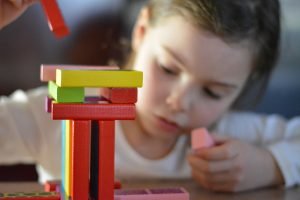[vc_row][vc_column][vc_custom_heading text=”What is Play and how does it relate to Kids?” font_container=”tag:h2|text_align:left|color:%23704825″ google_fonts=”font_family:Salsa%3Aregular|font_style:400%20regular%3A400%3Anormal”][vc_column_text]Play is an essential component of child’s learning and development processes that parents and teachers cannot afford to ignore at home and school respectively.
Play means engaging in activities for fun and enjoyment majorly by young children.
Although play is essential for individuals of all ages, it is more meaningful in the case of young children. Children channel a lot of effort and energy towards play. To prove this right, just experiment by watching a child struggling to complete puzzles in the right order. Children always want to go on and on with play.
Besides, young kids possess an expected inclination towards play.
However, it is sad to note that a majority of young children are not given opportunities for adequate play. This shows how much carers, in this case, parents and teachers, fail to appreciate the significance of play.[/vc_column_text][vc_custom_heading text=”The importance of Play” font_container=”tag:h2|text_align:left|color:%23704825″ google_fonts=”font_family:Salsa%3Aregular|font_style:400%20regular%3A400%3Anormal”][vc_single_image image=”8329″ img_size=”full”][vc_column_text]There are various ways in which play is essential for kids.
Children attain social development, develop skills and exercise their imagination via play.
Skill development is clearly observable as children interact with their toys. For instance, children are observed to coordinate their hand movement when playing with toys. They also develop problem-solving skills as they devise ways to achieve the desired result with toys.
Play is also an incredible experience for children to develop social skills. Children learn to interact with each other while appreciating the importance of kindness and sharing.
Play is also an opportunity for children to develop imagination and creativity. For instance, we have sometimes observed children pretend to be doctors, firefighters, teachers, among other professionals. In this case, they act with knowledge of the expected roles of the roles of these people and ideas of what they constitute.
There are various Constituents of meaningful play namely:
- Children ought to be allowed to be their own decision makers
Allowing children to partake unstructured play accords them the freedom of making their individual choices. Consequently, children are able to learn that certain decisions have various consequences. In this regard, carers should allow children to play with open-ended resources such as wood blocks, ribbon scraps, and wooden sticks. Open-ended resources expose children to creative thinking.

- Children experience motivation
Through play, children develop a desire to comprehend what the world is like. Children develop self-motivation to engage in play as a result of this desire. More importantly, they learn to control their emotions to keep playing with their peers.
- The spontaneous nature of play
Typically, play is not planned. Children encounter changes during play and they have to adjust to these changes, for instance, when a toy fails to cooperate they struggle to make it cooperate. Hence, such an opportunity is important for a child to explore flexibility in their thinking.
- Play is an enjoyable time

Alongside play is emotional response. Children experience enjoyment after engaging in play which is that emotional response in this case.
These constituents of meaningful play accord your kid a rich experience. I believe that is what parents want for their beloved children; to develop good play memories.
Indeed, play time is valuable time for your child!
I hopefully wish that this will help you appreciate the importance of play to children and suppress any negative perception that you might have developed about children play.[/vc_column_text][/vc_column][/vc_row]

